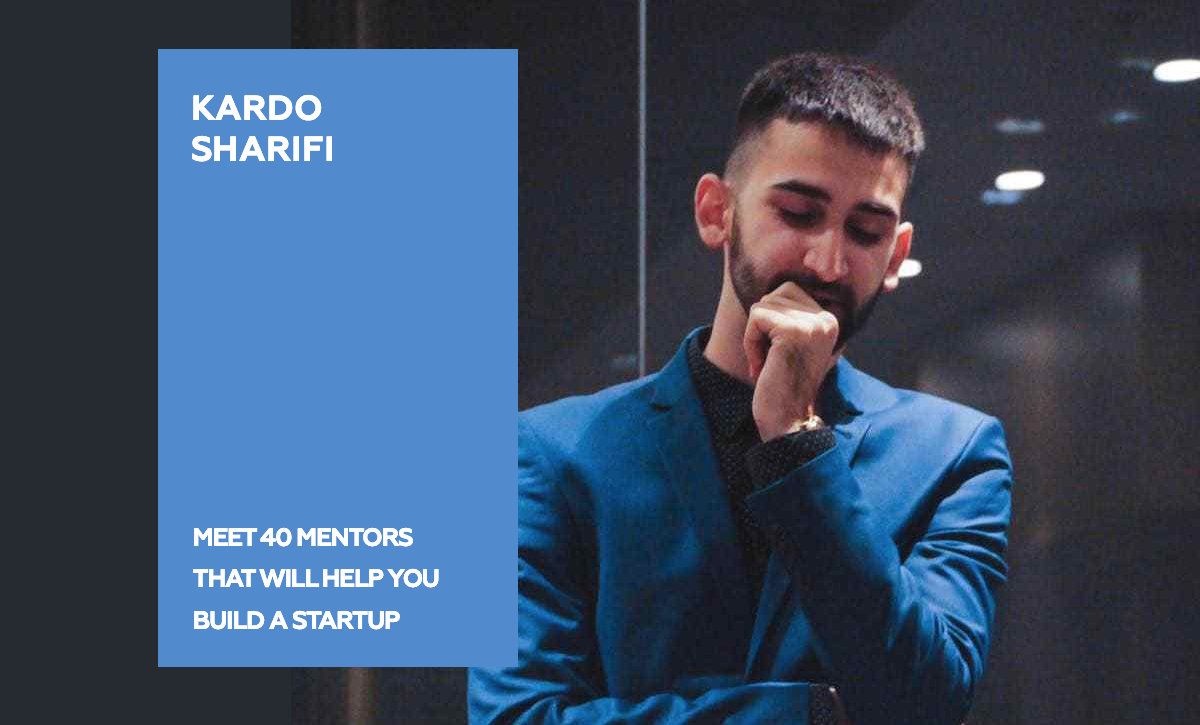
Hello, Kardo. Before meeting you, I checked out an interview about the outcome of the first season of Upcelerator, initiated by Dreamups in 2020. The date of the interview - October 13 - forms a curious coincidence with the number of startups that made it to the finals of the program. Also 13 they were. A few months have passed and, as promised, you're kicking off the second Upcelerator season. When does it start?
We start on April 19, with a deadline for applications on April 4.
Ten days left. How are the applications for season two going?
We're pleased, although there are still a few spots available...So if there's an opportunity, I encourage you to definitely take it.
There is a risk of repeating ourselves, but some of our readers may be hearing about the Moldovan Upcelerator project for the first time. What is the stake of the project and how does it benefit startup founders?
"Acceleration" is the keyword. Few people make it through the creation and development cycle of a startup in less than two or three years (at least, not without accumulating a collection of embarrassing mistakes). Upcelerator is basically a learning system that helps you create a startup from scratch in a very short time. And training does not end the Upcelerator mission but rather initiates it.
What do you mean?
At the end of the training program, graduates will present their startup projects to a group of investors. Some of the investors will have already met during the four months of the project as mentors, and the others will join them on the day of the presentations. As a result, the most interesting startups can attract real investment for their future development. In addition to these benefits, mentors also offer priceless support - they will help graduates build a successful professional network.
How many mentors will there be in the second season of Upcelerator?
Forty people from around the world.
Who could I interview among them?
Cameron Manwaring, for example. Luckily for us, he's joining the project for the second time. Cameron lived in Moldova for a while and seems to have a strong attachment to our country. Just before his 30th birthday, he made it to the Forbes list for achievements in advertising and marketing. He has also worked for companies such as Turkish Airlines, Freshpet, Pizza Hut, Sony, Pepsi, ESPN, Cristiano Ronaldo, and even YouTube. Currently, he specializes in viral strategy and advises companies worldwide. Surely you've all seen the video he produced of Ronaldo dressed like a bum juggling a ball.
Last year Cameron was training participants to launch a project. What will he teach them this year?
This year he plans to hold a module on how to find a startup idea.
Scott Hocklander, USAID Moldova Mission Director, congratulated TEKWILL on its fourth anniversary. Join the congratulations by watching the video:
All right, who else do you think I should interview?
In your place, I would interview Bogdan Colcheriu, CEO of FRISBO, Romania. Bogdan has over 10 years of experience in the startup industry. In addition to FRISBO, he co-founded Trilulilu - one of the most popular streaming services. He was also involved in the creation of Okian, the largest online bookstore, and Risky Business, the first pre-seed accelerator in Romania.
Many thanks for the recommendations. How many modules (training stages) is the project made up of?
We have 16 modules planned. These cover practically the entire life cycle of a startup - from finding an idea and investors to marketing, promotion, and expansion after launch. Each module is led by two mentors and lasts one week.
Let's say I would like to participate in Upcelerator: how demanding it would be, given that I would have to combine the project with my current work? Just give me an example of how a module is put together.
Training and interaction with mentors take place online. At the beginning of the module, you will listen to mentors for two hours. Then you will have one week to complete tasks directly related to your startup project. For example, you might be asked to define the profile of the potential consumer of your products or services. During that week, you would have to find and interview around 50 people to create a consumer profile and then discuss it with your mentors by the end of the week.
Is communication between participants allowed?
We strongly encourage it! By solving similar problems, participants can give each other lots of suggestions. Additionally, for the second season, we have aimed to form an international group of participants. We already received several applications from abroad. This will allow founders to exchange experiences and opinions, observe what is the reaction to the same idea in different countries.
So, those who managed to apply by 4 April 2021 and started on 19 April, when will they graduate the second season?
August 17th. As for those who graduate from the program in full and have a project that makes it to the finals, they'll have the opportunity to present their startup to a group of investors. Our goal is for the top startups to receive a $10,000 investment, but most importantly, they will continue to actively engage with the mentors and investors they have attracted.
The Upcelerator application can be submitted at this link.
"Be great together powered by Tekwill" column was created within the "Development of ICT Center of Excellence in Moldova Tekwill" project. It was implemented by the National Association of Information and Communication Technology Companies with the support of the United States Agency for International Development (USAID) and Sweden.
Pavel Zingan







